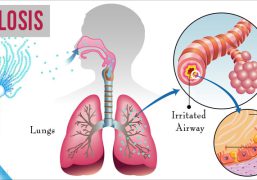Typhoid fever
Typhoid fever is a bacterial infection caused by the bacterium Salmonella typhi. It is transmitted through contaminated food and water, as well as by contact with infected individuals. The symptoms of typhoid fever typically develop gradually and include fever, headache, fatigue, abdominal pain, and a rash of flat, rose-colored spots on the trunk of the body.
Diagnosis of typhoid fever is made through blood, stool, or urine tests that can detect the presence of the bacteria. Treatment typically involves a course of antibiotics, which can help to reduce the severity of symptoms and prevent complications.
Prevention of typhoid fever involves practicing good hygiene, such as washing hands regularly and avoiding food and water that may be contaminated. A vaccine is also available to help prevent typhoid fever, and may be recommended for individuals who are traveling to areas where the disease is common.
If left untreated, typhoid fever can lead to serious complications, such as internal bleeding, perforation of the intestines, and even death. Therefore, it is important to seek medical attention if you suspect you may have typhoid fever or have been exposed to someone with the disease.






